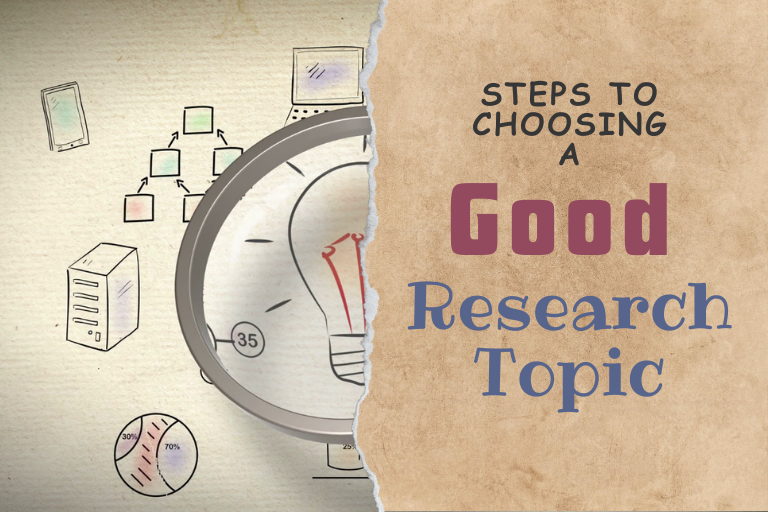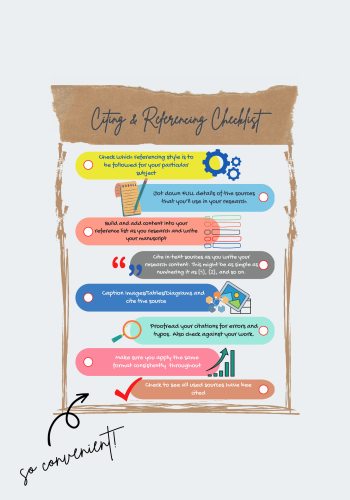Table of Contents
ToggleIntroduction: Choosing a Research Topic
Have you ever found yourself lost in the vast sea of research possibilities, unsure where to begin or how to refine your ideas into one focused research topic?
Embarking on a research journey can often feel like navigating a labyrinth without a map. Whether you are a seasoned academic, a curious mind eager to dive into the depths of knowledge, or a new student who is only getting started with research projects; this guide will help illuminate your path to crafting a precise, compelling research topic that not only captivates you audience but propels your scholarly pursuit to new heights.
Starting a research project can be overwhelming for most students simply because of the hefty amounts of already published research that exist in online databases like reference pages and literature reviews, etc.
But don’t forget, it’s an opportunity to learn because research projects are a hope for students to learn something new. As a student who is only starting out on a research project, you need to understand that research is never a waste of time. In fact, every aspect of research hones down your critical thinking, problem-solving, and communication skills.
Related: Why Develop Good Academic Writing Skills?
Every research project that you take on during your academics, regardless of its scale and research topic, adds to the cumulative body of knowledge.
Regardless of the greater or smaller scope of your research project, as a serious researcher you need to allocate and reserve a sufficient amount of time to perform a thorough research and survey of published works in your field of study.
A larger pool of sources provides a broader perspective of the topics within the scope of research. Finding a variety of sources that you can use can guide you toward topics that are more directly relevant to your topic. Even the articles you don’t find interesting will be useful for a future project.
Undergraduate-level research projects usually require 5 to 6 reputable sources to craft a literature review. However, graduate-level research projects are more detailed and therefore, have a minimum limit of 20 credible sources for a detailed review.
The point to understand here is not that the number of sources matters here alone. Rather, having access to a variety, a broad spectrum of research papers actually helps you with the following two main reasons.
- It gives you a wider view of the topics related to your research area.
- It helps you identify topics you don’t want to write about as you go through them.
Once you have a broad spectrum of research papers to analyze and choose your research topic from you’d then, just like a sculptor chiselling away at the marble to reveal a masterpiece hidden within, use and analyze those broad spectrum of research papers so as to guide yourself towards that one research topic you find directly relevant to your subject area.
One of the prerogatives of research is that you can go after your curiosity, thoroughly research on that specific thing, and authentically derive one good research topic from all your findings for your thesis or research project. Remember that having done research on a broad spectrum of research articles gives you enough data to refer to for even your future projects. That way, your research time for your future research projects will be reduced significantly.
Now that you’ve read the introduction part of finding your research topic, let’s maneuver the steps to choosing your Research Topic.
Steps to Choosing a Good Research Topic

Coming up with your interesting research topic is quite challenging simply because of the exponential growth in the scientific literature. It has made it complicated and daring for students to identify research areas that still have potential and require considerate research.
A real challenge in selecting a research topic: Researchers need to identify promising ideas and refrain from selecting topics that lack potential.
Let’s say that you have been surfing the online research repositories for a while now and decide on settling down with one final topic for your research project. To make any one topic become your that ‘specific topic’, you’ll need to:
- Go with a topic that you have an interest in. Your interest matters as it will make your research process look more relevant. In that too:
- Firstly, you come up with the topic of your interest, let’s say for example, something about marine life
- Secondly, start narrowing it down by being a little more specific about the chosen topic in the above step ‘a’, let’s say you narrow the example in first step to something for example, coral reefs and their ecosystem
- Thirdly, you’ll need to be a lot more specific about your topic, which means you’ll be needing to set boundaries so that you won’t go off-topic when working on your paper.
This means that if you take ‘coral reefs and their ecosystem’ as your topic, the topic would be too diverse for your project to entail all the required information within the word count available to you.
In simple words, you’ll need to further narrow down on this topic to become something like (following the same example as before), “the impact of ocean acidification on coral reef biodiversity”.
Now, that’s a specific topic you can choose as your research topic!
Considerations to contemplate on before selecting your Research Topic
Understand and identify your audience: Most of the time you write your academic papers like the thesis or term paper to be read by your colleagues, instructors or a committee of professors. More commonly, you could say that
However, what students normally forget is that sometimes their academic writing work is addressed to an audience outside of their field. This usually happens when their thesis paper or research paper gets published in online journal libraries or maybe a grant proposal read by an interdisciplinary committee.
You need to understand your audience and give a thought to who will read your paper before you start composing. Asking yourself these questions can come in handy in understanding your audience:
- Who will read your paper?
- How much do they know about the topic and what exactly do you want to make them understand?
- Why would your audience want to read what you write and can you keep them hooked into reading your entire content?
- What reaction would the readers give after reading your written work? (The answer to this question will be dependent on whether you are (through your writing) expanding an ongoing body of research, filling in a known gap in current understanding, or maybe challenging accepted ideas)
- Also consider what stye of writing is your audience used to? Should you follow accepted patterns in crafting your content, or maybe go with a general tone that normally a writing in your field follows?
Having answers to these questions will transform the quality of your content and the form of your writing will align exactly with what your audience wants to read.
Be clear on your purpose for writing: Alongside your audience, the purpose of your writing is yet another important consideration to give a thought to in order for your writing to be complete. The “Purpose” of your writing is defined by your intent of writing i.e. it is an answer to questions: Why are you writing and what effect you intend to derive out of it?
Generally, the most common purpose of academic writing is to:
- explain an idea or some research findings so as to communicate your knowledge in a clear, concise, and organized manner within a specific academic discipline
- persuade readers about your theory or findings to be correct one
Being clear on the purpose of writing an academic paper adds credibility to your work, demonstrating your intentionality and commitment to scholarly disclosure.
Set the right tone for your writing: Generally, academic writing often requires a more formal tone to maintain objectivity and adhere to disciplinary conventions. However, some instances require or even prefer the writers to adapt a tone different than the traditional formal one.
For example, in certain fields such as literature, creative writing, or interdisciplinary studies, academic writing may adopt a more personal or subjective tone to convey the writer’s unique perspective, creativity, or emotional engagement with the subject matter. Similarly, in educational contexts where the goal is to engage and motivate students, academic writing may adopt a more conversational or instructional tone to facilitate learning and comprehension.
In simple words, tone describes the feeling of your writing and both your audience and purpose have a significant effect on tone. Here’s why considering the tone of your writing matters:
- It establishes your (as a writer) credibility and professionalism
- It sets the appropriate level of formality for your intended audience
- It affects the reader’s perception of your (as a writer) attitude and stance towards the topic.
- It helps convey your voice and perspective while maintaining level of detachment or objectivity necessary for scholarly discourse.
- An appropriate tone enhances clarity and coherence, ensuring that the message is communicated effectively and the intended meaning is conveyed accurately to the readers.
Some Additional Tips on Selecting your Research Topic
- Often times in your assignment or project brief, instructors do mention and outline the guidelines for topic selection. Don’t forget to review those and, if needed, you can also discuss or request your professor, instructor or TA for some suggestions.
- Refresh your knowledge of the course by reviewing your lecture notes
- Think and answer the 5 W’s: Why, Who, What, Where, and When.
- Why you choose the topic you did?
- Who would provide the information about your selected topic? (Consider also answer to the question: who are affected by the topic, )
- What major questions should be answered for your selected topic without going off topic?
- Where in locality is your selected topic important? (International or National level)
- When was your selected topic important? (current event or historic issue, consider time of trend or popularity)
If you’ve got answers to these 5 Ws with a valid reasoning, your selected research topic is good enough to work on!
Even though you research and gather material before coming up with your final research topic, remember that should you find that the initially collected material lacks information about certain sub-topic (say a subheading in your work), you can always go back and research more about it, even if you are already in the writing process.
Why Narrow down your Research Topic?

Having a research topic with a very broad scope would make it quite difficult for you to adequately address the topic within the constrictions of the time and space allowed to you.
For a topic too broad, you could encounter problems like:
- Coming across too many information sources which confuses you on deciding what to include and what to skip. This also confuses you about what the most relevant sources to your topic are.
- Coming across information sources that are way too general. These sources confuse the process of clear framework development for appropriate examining of your research topic.
- Not having clear guidelines for the research problem makes it hard to know which methods to use for analysis.
- When the scope of your research topic is broad you gather information for many different underlying topics. Then you try to fit it all into one paper and ultimately end up going off-topic unnecessarily.
- With the burden of incorporating too much data in small space, you’d be shifting your focus over generalizing or summarizing rather than analyzing your research topic.
Rather than running into similar problems midway your research project, It is better to have your research topic narrowed down from the very beginning.
Narrowing down your research topic is a common challenge that you, just like most students, can face when beginning to work on your research-based project. The “how” and in “what ways” questions to narrowing down you research topic is what pops up in the minds of students firsthand.
It’s quite natural to feel overwhelmed by the vastness of potential topics but it is also important that you don’t attempt to do too much in one paper only, so much so forth that you surpass the required wordcount limit by more than ±10% (which is normally considered acceptable by institutions).
Often times when you are assigned a ‘specific topic’ to work on by your instructor, that ‘specific topic’ would almost always require topic narrowing step to a certain degree.
Now you might be wondering how to know if the topic assigned is too broad and should be narrowed down?
Well, the answer lies in researching to find if the review of literature for a specific topic reveals too many different, often times conflicting or only remotely related ideas about your research topic.
Where do students err in this? You may ask.
Mostly, students, after coming across with a pool of information about the topic, start the writing process thinking to incorporate in their writing a variety of approaches to studying and analyzing their specific research topic, completely ignoring the topic narrowing step. What happens later is that they easily go off at a tangent, unnecessarily consummate their word count, and later face issues like the adjustment of wordcount to the required limit. This is more frustrating than writing because first they write the whole thing and then return to only have it deleted to meet the required wordcount limits.
It is, therefore, crucial that you work on narrowing the focus of your research topic at an early stage in the writing process. Below are some of the strategies that you can adopt to narrow down the focus of your research topic.
Strategies to Narrowing your Research Topic

One Lens Approach
Rather than viewing the topic of your research problem from multiple angles, view the problem from one facet of it. For instance, rather than focusing on the overall impact of technology on education, narrow your focus to how mobile devices specifically affect elementary school students’ learning outcomes.
Subdivision
Figure out if your initial variables or unit of analysis might be subdivided for a more thorough and precise analysis. For instance, instead of examining the effect of social media on teenagers as a whole, concentrate on how Instagram usage influences self-esteem among teenage girls aged 13-16.
Methodology
Gathering right and ‘more focused to the topic’ information through research can make your research problem easier to understand. For instance, in most cases, rather than studying multiple case studies with multiple cases involved, conducting study on a single case study thoroughly can provide you data that’ll make you better understand your research problem.
In other words, analyzing one specific example in-depth may yield clear and concise findings, whereas studying multiple cases might require more detailed explanations and interpretations, confusing your mind as well.
Geographics
Assessing and analyzing a smaller geographical unit can narrow down the focus of your research topic. For instance, instead of examining the effects of climate change on global agriculture, focus on how rising temperatures specifically affect rice production in Southeast Asia.
Relationships
To constrict the scope of your research topic, you can consider structuring your study around relationships between specific variables. For instance, compare/contras, cause/effect, child/adult, etc.
Time
Structuring your study across a long timeline makes your scope much broader. You can consider shortening the time period to make your topics’ focus narrower. For instance, instead of examining the history of immigration policies in the United States, you could narrow your focus to analyze changes in immigration laws specifically from 1990 to 2000.
Categorization
You can also narrow down the focus of your research topic by assessing only a specific type of class of people, places or phenomena. For instance, if you’re researching ways to improve healthcare in a community, you could specifically look at the availability of specialized healthcare services for children with disabilities, etc.
Combination
Sometimes it might be needed, given the scope broadness of your research topic, that you use a combo of the above strategies to effectively further down the scope. That too can be done; however, you’ll need to be careful because combining multiple strategies risks creating problems like the data and resource availability for a much-narrowed scope might be sparse or not easily available at all for you to support your arguments.
As an additional tip to effectively narrow the scope of your research topic you might also consider:
- Conducting a small-scale pilot study or preliminary research to test the feasibility of your topic. Through this process, you can identify any challenges or limitations early on and adjust your topic accordingly. Here’s how this can help:
- Pilot studies aid in clarifying research objectives and refining research questions by pinpointing specific aspects of the topic that are most relevant for investigation.
- You can experiment with different research methods and data collection techniques during your pilot study, allowing you to streamline your methodology for the main research.
- It can even help you select and refine the variables or factors you intend to study by analyzing initial data and observing patterns or trends
- It also provides you with invaluable insights into the topic and its context, guiding you towards key areas for further exploration and helping you focus on your research efforts effectively.
- In the process of choosing your research topic, ensuring that your chosen topic is relevant and significant within the context of your field can also help you in narrowing your research topic.
- During the entire phase of your research project, you should consult with advisors, your professors, or peers and request feedbacks about your topic and work. Feedback can help you validate your topic and scope, improve your research question, and address any issues or gaps. You can even use feedback to learn from different perspectives and insights, and to refine your proposal accordingly.
- During your research process, you may encounter new information, challenges, or opportunities that may require you to adjust your topic a scope. You may also need to revise your literature review, conceptual framework, or methodology accordingly however, do keep in mind to communicate and discuss any changes you make to your supervisor or committee so as to get their feedback.
Conclusion
In conclusion, choosing a research topic is a pivotal step in the academic journey, yet it can be daunting due to the vast array of possibilities.
However, by following a systematic approach, you can navigate through this process effectively. It is imperative to ensure that the selected topic is relevant and significant within the context of your field, as this serves as a guiding principle for narrowing down the focus.
Conducting a small-scale pilot study or preliminary research proves invaluable in this regard, providing insights into the feasibility of the topic and guiding the refinement of research objectives and methodology.
Additionally, consulting with advisors, professors, or peers for feedback throughout the research process aids in validating the topic and scope, enhancing the research question, and addressing any gaps or issues.
Flexibility is key, as adjustments may be necessary based on new information or challenges encountered during the research journey.
By embracing these strategies and considerations, you can embark on a focused and impactful research endeavor that contributes meaningfully to both your academic field and career-life.
Want to make Citing and Referencing easier in your Academics?
Get the free citing and referencing checklist below:
Take it to your Inbox!
Subscribe to my Newsletter
Never miss the Tips, Tricks, and Insights that I share on my site.



Add a Comment